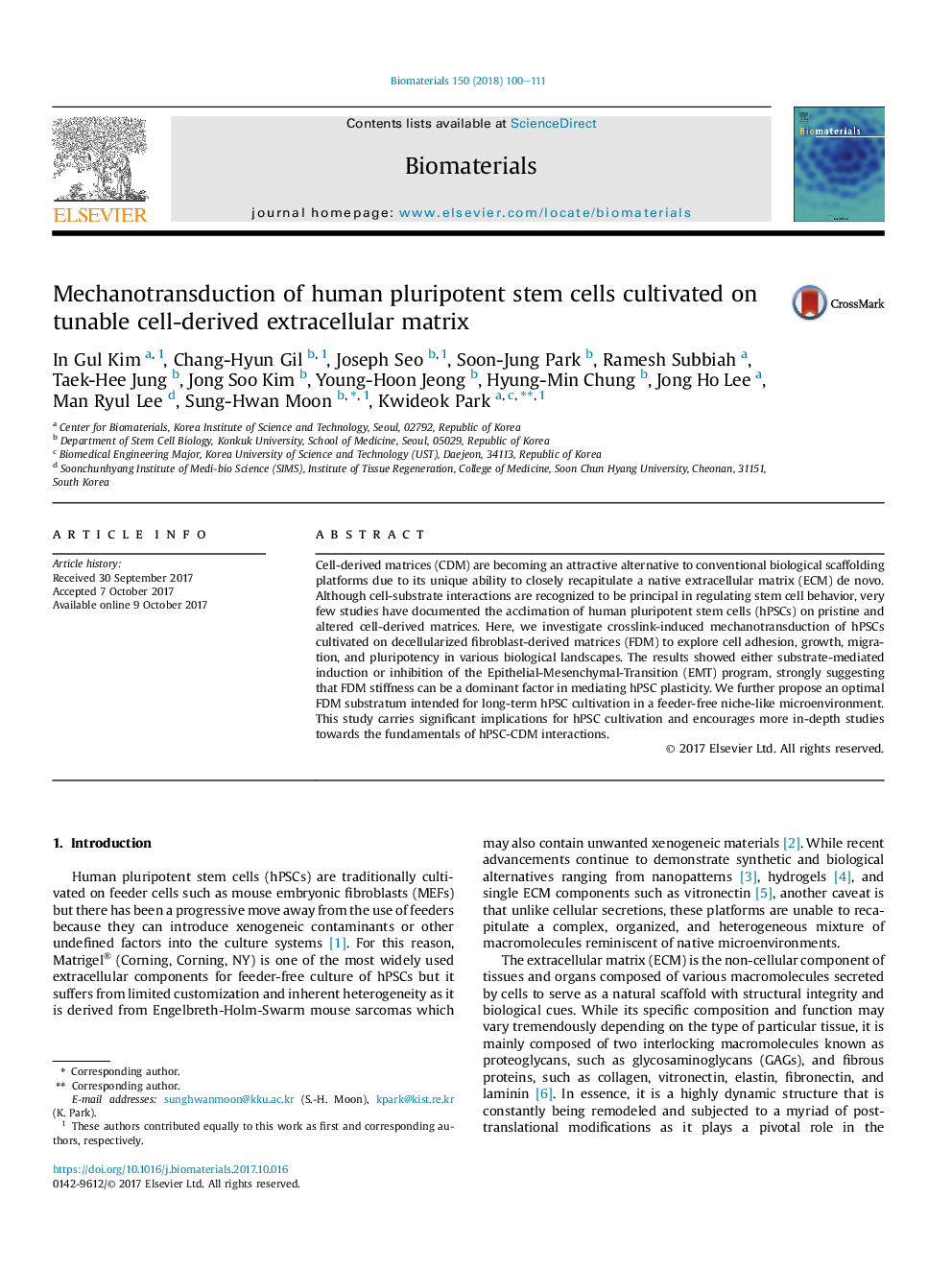| Article ID | Journal | Published Year | Pages | File Type |
|---|---|---|---|---|
| 6450485 | Biomaterials | 2018 | 12 Pages |
Cell-derived matrices (CDM) are becoming an attractive alternative to conventional biological scaffolding platforms due to its unique ability to closely recapitulate a native extracellular matrix (ECM) de novo. Although cell-substrate interactions are recognized to be principal in regulating stem cell behavior, very few studies have documented the acclimation of human pluripotent stem cells (hPSCs) on pristine and altered cell-derived matrices. Here, we investigate crosslink-induced mechanotransduction of hPSCs cultivated on decellularized fibroblast-derived matrices (FDM) to explore cell adhesion, growth, migration, and pluripotency in various biological landscapes. The results showed either substrate-mediated induction or inhibition of the Epithelial-Mesenchymal-Transition (EMT) program, strongly suggesting that FDM stiffness can be a dominant factor in mediating hPSC plasticity. We further propose an optimal FDM substratum intended for long-term hPSC cultivation in a feeder-free niche-like microenvironment. This study carries significant implications for hPSC cultivation and encourages more in-depth studies towards the fundamentals of hPSC-CDM interactions.
